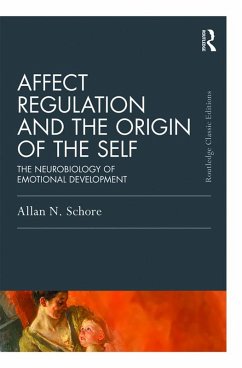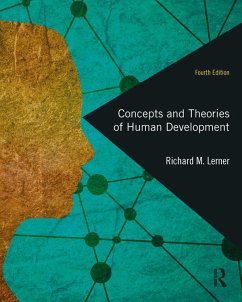
The Origin of Concepts (eBook, ePUB)

PAYBACK Punkte
13 °P sammeln!
Only human beings have a rich conceptual repertoire with concepts like tort, entropy, Abelian group, mannerism, icon and deconstruction. How have humans constructed these concepts? And once they have been constructed by adults, how do children acquire them? While primarily focusing on the second question, in The Origin of Concepts , Susan Carey shows that the answers to both overlap substantially. Carey begins by characterizing the innate starting point for conceptual development, namely systems of core cognition. Representations of core cognition are the output of dedicated input analyzers, a...
Only human beings have a rich conceptual repertoire with concepts like tort, entropy, Abelian group, mannerism, icon and deconstruction. How have humans constructed these concepts? And once they have been constructed by adults, how do children acquire them? While primarily focusing on the second question, in The Origin of Concepts , Susan Carey shows that the answers to both overlap substantially. Carey begins by characterizing the innate starting point for conceptual development, namely systems of core cognition. Representations of core cognition are the output of dedicated input analyzers, as with perceptual representations, but these core representations differ from perceptual representations in having more abstract contents and richer functional roles. Carey argues that the key to understanding cognitive development lies in recognizing conceptual discontinuities in which new representational systems emerge that have more expressive power than core cognition and are also incommensurate with core cognition and other earlier representational systems. Finally, Carey fleshes out Quinian bootstrapping, a learning mechanism that has been repeatedly sketched in the literature on the history and philosophy of science. She demonstrates that Quinian bootstrapping is a major mechanism in the construction of new representational resources over the course of childrens cognitive development. Carey shows how developmental cognitive science resolves aspects of long-standing philosophical debates about the existence, nature, content, and format of innate knowledge. She also shows that understanding the processes of conceptual development in children illuminates the historical process by which concepts are constructed, and transforms the way we think about philosophical problems about the nature of concepts and the relations between language and thought.
Dieser Download kann aus rechtlichen Gründen nur mit Rechnungsadresse in A, B, BG, CY, CZ, D, DK, EW, E, FIN, F, GR, HR, H, IRL, I, LT, L, LR, M, NL, PL, P, R, S, SLO, SK ausgeliefert werden.













